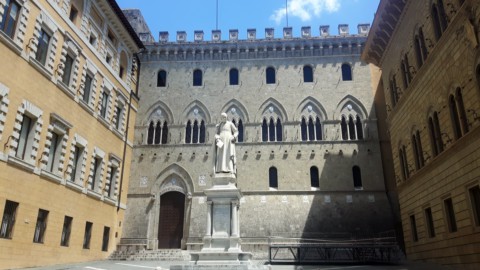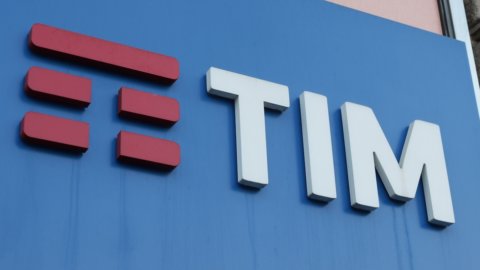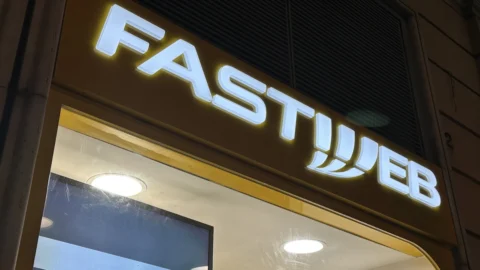NEW YEAR'S EVE BOTS ARE SCARY
TREASURE HUNTING FOR 20 BILLION
Let's start once again. And in the spotlight, in a week before the holidays with probably modest volumes, the spread between the BTP and the Bund remains, back above the 500 level before the Christmas break. In this context, the Treasury is forced to face another high-risk exam: tomorrow Bots for 9 billion and Ctz for 1,5-2 billion will go to auction. Thursday will be the turn of Btp and CcTeu for another 8-9 billion. Meanwhile, last week, the ECB practically eliminated the purchase of government bonds on the secondary market: only 19 million euros compared to the 3,36 billion euros of the previous week. Meanwhile, the overnight deposits of banks at the central bank in Frankfurt have shot up to 346 billion, an increase of 30% compared to the previous week. In short, the mini bazooka activated by Mario Draghi is struggling to produce effects while the Bundesbank-branded ECB, far from increasing its efforts, seems to want to pull the oars in the boat.
BRAZIL BEATS LONDON,
THE BIG D'ASIA SNUBB THE DOLLAR
Let's start once again. Indeed, a large portion of world finance has already restarted. Yesterday, Boxing Day, Asian stock exchanges recorded a moderate rise: Nikkei 225 +1,1%, the Indian Sensex +1,5% while the Moscow Stock Exchange is up 0,8%. But this morning the Tokyo Stock Exchange allowed itself a break - 0,41%. Better to be cautious while awaiting the outcome of the Italian auctions. But, while awaiting the resumption of trading in Europe, the USA, Latin America and Hong Kong, the real star was the yuan. Not so much because the Chinese currency reached a 17-year high against the dollar at 6,3160, but because on Christmas day the Land of the Dragon and Japan reached a historic agreement, also in light of the long-standing differences between the two powers: from now on, commercial and financial exchanges between Beijing and Tokyo will take place in yuan and yen, without recourse to the dollar. Indeed, the Yomiuri of Tokyo has a full-page headline "Escape from the dollar". Meanwhile, Brazil's GDP has surpassed that of Great Britain. The "Cario" economy is now in sixth place in the ranking based on GDP, behind the USA, China, Japan, Germany and France. Italy remains eighth.
METEO EXCHANGE: INCREASES ARE WEAVING IN MILAN. The Eurozone has very little to celebrate both if it looks at the 2011 budget and, above all, in the face of a 2012 that begins under the banner of recession. All, of course, under the threat of a dreaded flop in the Treasury auctions. But the winds of crisis accelerate the necessary restructuring. And so Piazza Affari, despite the semi-festive atmosphere, is about to experience at least two front-page matches: the sunset of the Ligresti era in Fonsai; the fate of Impregilo, increasingly uncertain after Fonsai's departure from the scene. In particular, it will be interesting to see the market's reaction to the prospect of a capital increase of up to 750 million euros, approved by the board on Friday evening. A shower provided but no less cold.
WEATHERBAG. WARM FINISH IN WALL STREET. Will the Standard & Poor's 500 be able to overcome last January's levels in extremis? In this case, the American lists will in practice be the only ones in the G20 to have overcome the obstacles of the last 12 months unscathed. Much depends on the latest year-end statistics: today it's up to house prices and, above all, consumer confidence. It could be the occasion for the definitive confirmation that the US economy has now embarked on the road to recovery, albeit at "moderate" rates. For the lists of the Old Continent, on the contrary, the unknown factor is represented by the sword of Damocles of the rating agencies: the relegation of France and other members of the Eurozone is a matter of time.
EDISON, COUNTDOWN TO ELECTRIC PEACE
The Foro Buonaparte company has fallen into the hell of junk bonds. This was decided by Fitch, after the umpteenth postponement of the agreement between EDF and the Italian partners. The news, although expected, had the effect of speeding up the terms of the agreement between the litigants, the first test case for the new Minister of Economic Development Corrado Passera. Hard work was done in Santo Stefano to find an agreement on the price of the large exchange: 30% of Edison to Edf, all of Edipower to the Italian consortium. A not insignificant detail: 10% of Edison remains out of the peace in the hands of Romain Zaleski's Tassara, which is one of the most painful thorns for the creditor Banca Intesa.
THE NEW UNICREDIT IS STARTING TODAY:
WORTH TEN OLD TITLES
Effects of the crisis. The grouping of Unicredit shares is effective from today: one new share for every ten old ones already owned. The transaction also affects savings bonds. This morning, therefore, Unicredit restarts from the price of 6,905 euros, against 10,4 for savings. The novelty was decided on the eve of the next capital increase of the bank in Piazza Cordusio. The fractions in the hands of the shareholders will be liquidated from 2 to 12 January by Banca Finnat which has received the assignment from Unicredit. All that remains is to remember how the "new" Unicredit is now close to 7 euros, or the price level that the old Unicredits should have reached to trigger stock options for the bank's managers before the crisis.
EXOR, AFTER TOURISM, THE PREMAFIN IDEA COMES OUT
Among the "hot" topics, the reaction of the markets to a deal that has been simmering in Exor's pot for some time stands out: the sale of Alpitour. The financial company remains (probably at the request of the buyers) with a 10% stake in the vehicle company which for 225 million acquired the Italian tourism leader which will be entrusted by the buyers, the private equity firms Wise and J. Hirsch plus the Italian Network Capital to Gabriele Burgio, former CEO of Nh. The capital gain on book value is 85 million, of which 22 reinvested in Alpitour. More or less the amount (72 million) that Exor has allocated to deal with the capital increase of Juventus. But this commitment, plus the purchases of Fiat privileges and savings necessary to maintain the shareholding above the bond of the tender offer certainly do not exhaust the energies of the Lingotto leader. Therefore, the hypothesis is taking shape that Exor could participate in the capital strengthening of Premafin, the "box" that controls Ligresti's stake in Fonsai. The company needs a large investor to cope with the company's increase. The proximity of Leonardo & Co., of which Exor is a major shareholder, to the Premafin dossier favors the involvement of the Agnelli group. In addition to the fact that Sai, domiciled in front of La Stampa, is an old creature of the Ifi house. But above all, it is no mystery that the group, after the exit from Toro and the sale of the stake in Intesa, today does not have a financial lung up to its ambitions. But who knows if Mediobanca, director of the operation, will appreciate this flashback.
FONSAI, MEDIOBANCA KNOCKS ON PRIVATE FUNDS
The Fonsai dossier, however, is now prominently displayed on many desks. After the umpteenth cleaning operation from which losses of 925 million will emerge (net of the tax burden), the comrades will have to try to sell what can be sold, an almost desperate mission these days, or proceed tout court with a request for 750 million which it will not be able to cope with the Ligresti family. For this reason, private companies such as Clessidra, companies such as Unipol, Cattolica and Vittoria have already been contacted by the advisor Mediobanca (fresh from the success of the Bpm operation, another apparently impossible mission). However, it will be necessary to proceed with the establishment of a consortium, which is not easy because partners linked to Generali must be excluded, for antitrust reasons. Equally difficult is the transfer to a foreign company, also because, beyond the tricolor proclamations, we do not see this great interest in entering the Italian business, given the prospects of our economy.
IMPREGILO, THE SOLUTION GOES THROUGH BRAZIL
Among the most important decisions of the Fonsai board of directors, the decision to accept the offer of the financial company Argo (Gavio group) for 33% of Igli stands out. Thanks to this move, the Tortona group could have 66% of the box in which 29% of Impregilo is parked. But the conditional is a must. Atantia, a Benetton group, not only controls the remaining 33% but has a pre-emption right to take over half of the selling shareholder, i.e. Fonsai. It is by no means excluded that Atlantia will exercise the right, thus rising to a stake of just over 14% in Impregilo (the same as Gavio) and then allying itself with Salini, already the owner of 15%. But what would be the cement of the union? Salini has already expressed its willingness to concentrate Impregilo in the construction business by getting rid of the stakes in American highways, i.e. Ecorodovias, which at the moment have a higher stock market value than Impregilo itself. It doesn't take too much imagination to imagine that Atlantia is the most interested buyer in motorway concessions, a business that does not interest Salini, who is determined to create a group that will rise to the top ten in Europe in the construction sector. But Gavio certainly won't be watching. As well as minority shareholders who fear a "sell-off" of the Latin American treasury. The next move, however, is up to the Benettons who have 60 days to decide whether or not to exercise the option on half of Fonsai's share.





